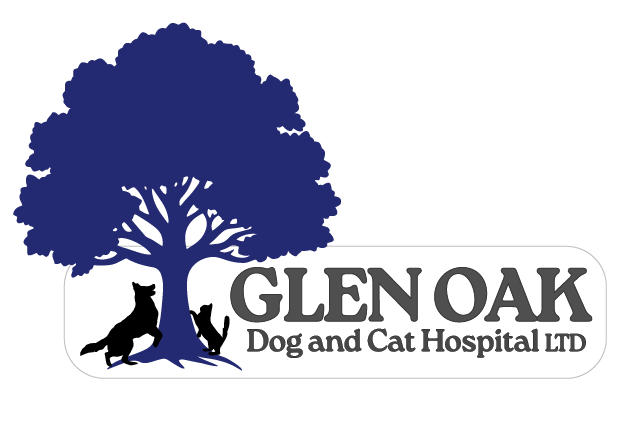.jpg)
As our beloved canine companions age, their medical care needs change. The aging process can be difficult for pet owners to manage and witness, but it is important to adjust to their changing needs to ensure that your senior dog lives the longest, healthiest life possible. In this article, we will explore the life expectancy of a dog, the common problems senior dogs encounter, and the importance of wellness exams as they age. We will also address the signs of a slowing dog, the importance of not self-diagnosing, and what your veterinarian will be looking for during examinations as your dog reaches the senior stage of life.
What is the Life Expectancy of a Dog?
The average life expectancy of a dog is 10-13 years, but this varies widely depending on the breed, size, genetics, diet, exercise, and environment. Small breeds live 10-15 years, and sometimes as long as 18 years, while giant breeds live 8-10 years. Genetics are also a contributor to lifespan, with purebred dogs tending to live slightly shorter lives due to problematic genes being passed along. Nutrition is another key factor in lifespan, with a balanced and high-quality diet helping to ensure healthier and longer lives for our canine companions. In addition, regular physical activity and mental stimulation are also important for keeping senior dogs healthy and active.
How Does Getting Older Impact the Health of My Dog?
As dogs grow older, they may experience a wide range of physical and mental changes. Their vision may become cloudy, and they may eventually develop hearing loss. They can also suffer from mobility issues due to arthritis or other degenerative diseases. In terms of behavior, older dogs may become more anxious, disoriented, or confused due to cognitive decline and reduced activity levels. These changes can impact the life of your senior dog significantly and must be managed appropriately to ensure their quality of life is not compromised.
.jpg)
What Type of Wellness Care for Needed for Senior Dogs?
Wellness care is essential for senior dogs to ensure they remain healthy and active. Regular checkups with your veterinarian can help detect chronic health problems early, allowing for timely treatment and potentially extending your dog’s life and allowing them to enjoy their golden years. Regular checkups also enable pet owners to manage their pet’s health issues more effectively, especially for senior dogs that may be taking multiple medications as they age.
What Are the Most Common Problems in Senior Dogs?
Senior dogs may suffer from a range of health issues, including hearing and vision loss, joint problems, obesity, dementia, cancer, heart disease, kidney disease, and dental problems. Hearing and vision loss due to tissue degeneration in the eyes and ears is common. Osteoarthritis is also quite common in older dogs and can lead to joint pain and stiffness. Additionally, obesity is especially prevalent in senior dogs due to their decreased activity levels and age-related decrease in metabolism. Cognitive decline is also common, with many senior dogs showing signs of confusion or disorientation as well as changes in sleeping patterns or altered interaction with family members.
What Happens During a Regular Wellness Exams for Senior Dogs?
During a routine wellness visit for your senior dog, your veterinarian will check your pet’s eyes, ears, skin, and coat. They will also assess your pet’s weight and gait as well as any mobility issues. Additionally, they may perform a physical examination of the internal organs such as the heart, lungs, liver, kidneys, and intestines. Blood tests may also be conducted to detect any underlying health issues or diseases that may not be visible during the physical exam.
.jpg)
What Are the Key Signs and Symptoms of an Aging Dog?
It is important to be aware of the signs and symptoms that your senior dog may be slowing down. These include cloudy eyes, bad breath, difficulty moving, increased urination or incontinence, changes in skin, coat, and nails, increased sensitivity to sounds, increased barking or whining, a decline in grooming and hygiene, and increased wandering. Behavioral changes such as avoidance of slippery floor surfaces or difficulties with stairs can also signal pain. If you notice any of these signs in your pet, it is important to contact your veterinarian for a checkup as soon as possible.
Why Is It Important to Avoid Self-Diagnosing a Senior Dog?
Despite the convenience of online resources, pet owners should always consult with a veterinarian when their pet shows signs of illness. Self-diagnosis can lead to misdiagnosis, a delay in treatment, and improper treatment, potentially resulting in irreversible harm to your beloved pet. Symptoms can indicate a variety of diseases, each requiring specific treatments, which an online diagnosis cannot possibly determine with complete confidence. Certain serious conditions in pets require immediate veterinary attention, and a delay in medical care from self-diagnosing can exacerbate the problem and cause unnecessary pain.
Conclusion
Caring for a senior dog requires special attention, patience, and understanding. It is important to remain aware of the signs and symptoms of aging, provide the necessary wellness care, and avoid self-diagnosis. At Glen Oak Dog & Cat Hospital, we understand the unique needs of senior dogs and are here to help pet owners navigate this stage of life. Our experienced team of veterinarians is dedicated to providing the highest quality and best service to pet owners. If you live in or near Glenview, IL, contact us today at (276) 600-2631 to set an appointment or if you have any questions about dog senior care.

